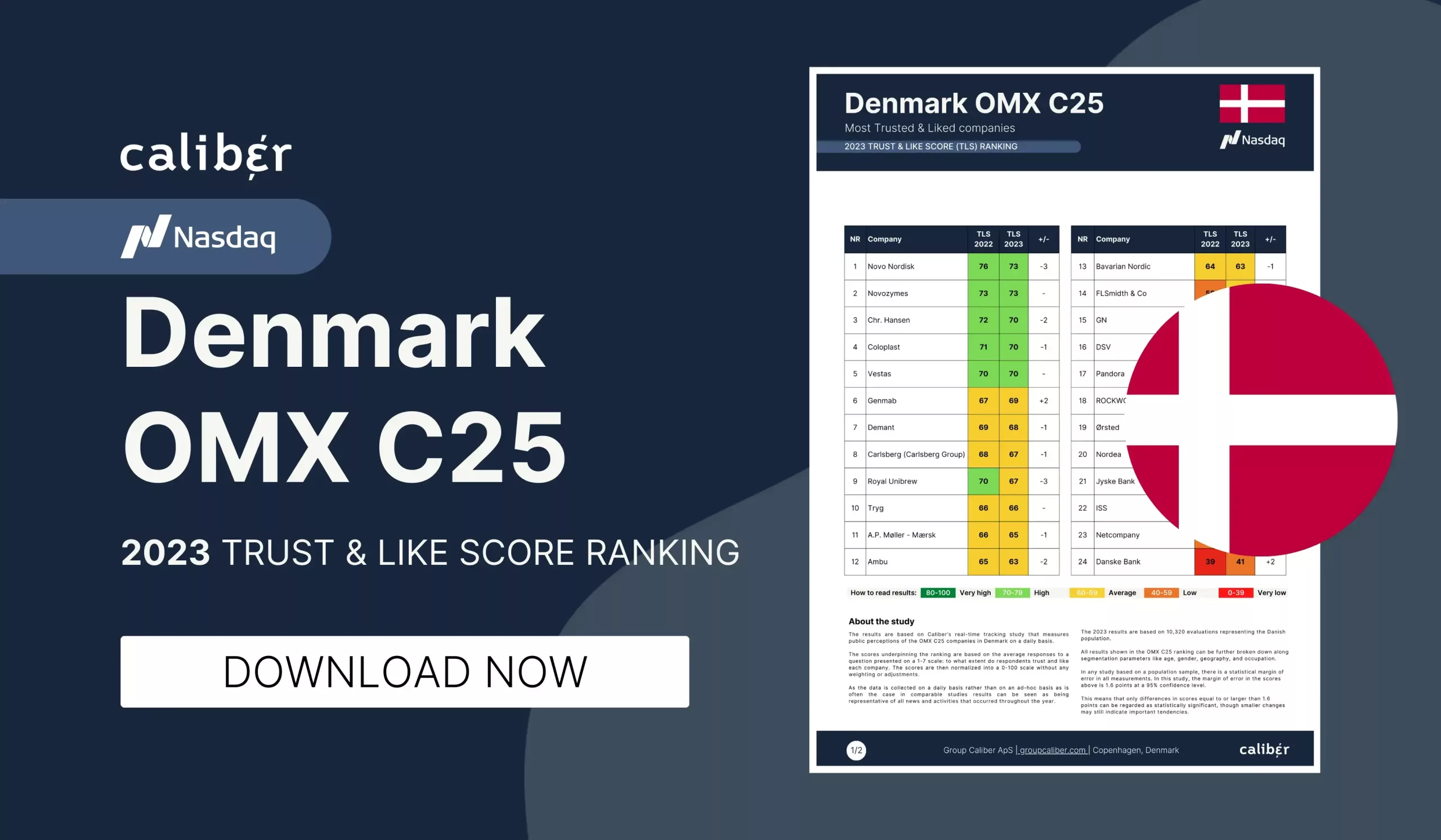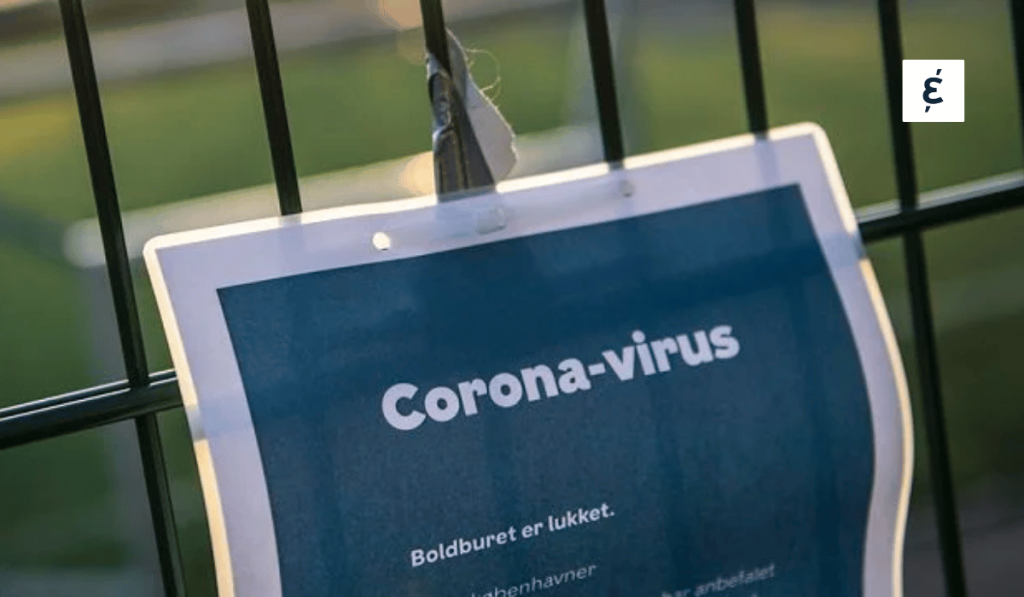

Any discussion of corporate reputation these days cannot avoid the mention of Covid-19 and its impact on public perceptions of businesses. This article is no exception. While the reputation ranking of Denmark’s 25 companies that are listed in the country’s OMX C25 stock market index is interesting in its own right, what it reveals about the pandemic’s impact goes beyond the topic of reputation, especially when compared to other countries.
Let’s start with who topped the ranking this year and which movements were most interesting. Sitting comfortably at the top, far above the rest with a large gap of over 4 points in its Trust & Like Score, is Novo Nordisk.
The Danish star pharmaceutical company has had a good year from a reputational perspective with a significant rise in score that kept it at the top. The company has worked hard throughout the year to support its stakeholders and Danish society through the pandemic, and the results show the approval of the public.
Being part of the pharma sector – typically a reputational headache – also proved helpful this year, with the sector winning the public’s renewed appreciation and admiration in a year that reminded everyone of the important role it plays in our lives.
Novo Nordisk is followed by four other titans of the Danish industry – Vestas, ROCKWOOL, Novozymes, and Carlsberg – all experiencing significant score rises from 2019, and all receiving nearly identical Trust & Like Scores in 2020.
The most notable of these is Carlsberg, which entered the top 5 following an impressive score rise of 3.7 points, the second-highest rise in the C25 list in 2020. It is tempting to believe that its improved reputation last year was a result of the much-talked-about affinity that the public had with alcohol during these lockdown days. But when contrasted with the largest score decline in the same list experienced by its rival Royal Unibrew – this increase in reputation seems to reflect more than that.
Another interesting result in the 2020 reputation ranking is the biggest climber – Danske Bank. While the company is still ranked at the very bottom of the list following many years of scandals, its improvement in score from 2019 to 2020 despite the general reputational decline of the sector globally throughout the pandemic, means the bank may have started its recovery journey after all.
Without a doubt, the most interesting insight coming out of the 2020 ranking is that the majority of the companies in the C25 list have experienced a reputational increase from 2019, and only two companies experienced a statistically significant decline (the insurer Topdanmark and the above-mentioned brewing and beverage company Royal Unibrew).
In a tumultuous year of volatile reputations and souring public mood, this is striking. It is even more striking when these results are compared with some other European countries, where average reputation levels have in fact declined – for example in Germany and the UK.
The inevitable question is: why? Is this a reflection of the appropriate way in which most large Danish companies reacted to the crisis and their positive behavior throughout the pandemic?
Or is it more a result of the way Denmark has experienced COVID-19 in general and of the relatively small damage the pandemic has had on the nation’s economy, health, and society – compared to other countries? The answer is probably a combination of both.
Denmark has weathered the COVID-19 crisis with a relatively low rate of infection and death and a less dramatic economic impact than most other European countries, which some have attributed to the government’s handling of the crisis and the public trust it enjoys.
This in turn has led to a more positive public sentiment than in many other countries throughout 2020, which partially explains the overall improvement in people’s perceptions of large companies.
Companies themselves have also benefitted from the government’s actions and support, allowing them to avoid mass layoffs and limit financial and reputational damage.
Lastly, many large companies in Denmark were visible and proactive in supporting their employees, customers, and communities during these times, reinforcing the Danish model that sees trust as underpinning interactions between people, institutions, and businesses.
As we all know, Denmark and the world are not out of the woods just yet – the coronavirus pandemic is still ravaging the world, and it is certainly too early to assess its full impact, reputationally or otherwise. But it is clear that most large Danish companies have fared well so far, and that certainly gives reason for optimism.
© 2024 Group Caliber | All Rights Reserved | VAT: DK39314320